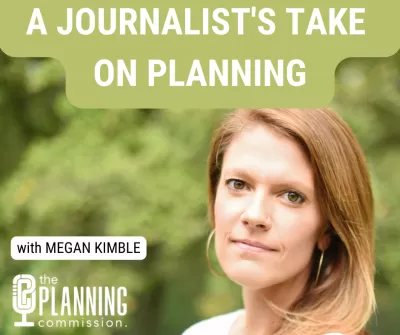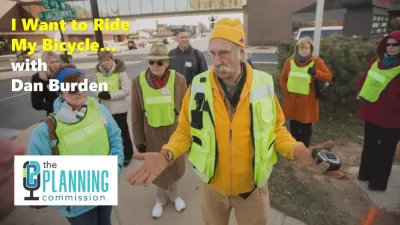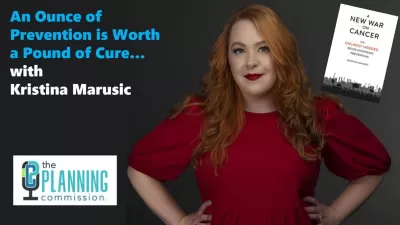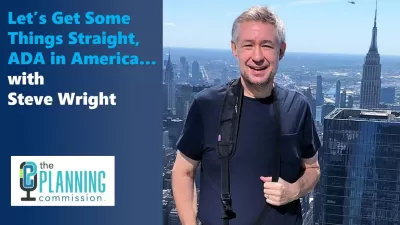Kimble’s interest in topics related to urban planning spawned from research and writing about food systems in the borderlands of Arizona. She then moved to Austin in the midst of the city’s update of its Land Development Code.

Austin, Texas, is feeling the pressures of intense growth and lack of affordable housing. This has impacted land development, transportation, food systems, and fair housing efforts. Megan Kimble has been on the front lines, chronicling these efforts and unearthing the linkages among them since relocating to Austin from Tucson in 2017.
“The best part about being a journalist is you get to inhabit other people’s professions and worlds, and once you get tired of them you can move onto another topic,” said Kimble.
Kimble’s 2015 book Unprocessed unearthed the underbelly of our food systems. From that perspective, she began to understand how access to opportunities in cities was predicated on where people lived.
“A lot of attention was paid to physical access to food,” Kimble told The Planning Commission Podcast. “That’s really important but I started covering transportation because, if you drive, then you can have access to all the things that you need. If you rely on public transportation, you are much more dependent on the resources that are around you in your neighborhood.”
This also ties into zoning policies, as Kimble has learned in covering the $10 million, decade-long effort by the City of Austin to update its land development code.
Kimble outlines what is occurring in Austin related to the code update. “The biggest thing that has prevented a new land development code is NIMBY opposition,” she said. Protest rights, which are also rooted in racism and segregation, are granted under Texas law and have played a major role in stalling the effort in the courts.
“It’s largely white, wealthy homeowners who have an enormous amount of power by state law and that has gummed up the whole process such that city leaders have not been able to get anything done,” said Kimble.
The sprawl stemming from the City of Austin’s inability to grow at higher densities has led Texas DOT to plan for wider highways around and through Austin.
“What TxDOT is doing is fairly rational” due to the demand created by the sprawl, said Kimble. That's doesn't mean they aren't skirting environmental laws and ignoring the lessons learned after 60 years of highway building and expansion with little effect on reducing congestion.
The Planning Commission is a spirited debate by planners, for planners. This independent outlet for all things planning explores the serious and lighter sides of the profession, poses probing and creative questions to guests, and always pairs the episode guest and topic with a choice libation. Listen to the podcast for a special offer from Planetizen.
FULL STORY: The Planning Commission Podcast, Season 2 Episode 14: A Journalist's Take On Planning

Alabama: Trump Terminates Settlements for Black Communities Harmed By Raw Sewage
Trump deemed the landmark civil rights agreement “illegal DEI and environmental justice policy.”

Planetizen Federal Action Tracker
A weekly monitor of how Trump’s orders and actions are impacting planners and planning in America.

The 120 Year Old Tiny Home Villages That Sheltered San Francisco’s Earthquake Refugees
More than a century ago, San Francisco mobilized to house thousands of residents displaced by the 1906 earthquake. Could their strategy offer a model for the present?

Housing Vouchers as a Key Piece of Houston’s Housing Strategy
The Houston Housing Authority supports 19,000 households through the housing voucher program.

Rural Population Grew Again in 2024
Americans continued to move to smaller towns and cities, resulting in a fourth straight year of growth in rural areas.

Safe Streets Grants: What to Know
This year’s round of Safe Streets for All grant criteria come with some changes.
Urban Design for Planners 1: Software Tools
This six-course series explores essential urban design concepts using open source software and equips planners with the tools they need to participate fully in the urban design process.
Planning for Universal Design
Learn the tools for implementing Universal Design in planning regulations.
Clanton & Associates, Inc.
Jessamine County Fiscal Court
Institute for Housing and Urban Development Studies (IHS)
City of Grandview
Harvard GSD Executive Education
Toledo-Lucas County Plan Commissions
Salt Lake City
NYU Wagner Graduate School of Public Service





























